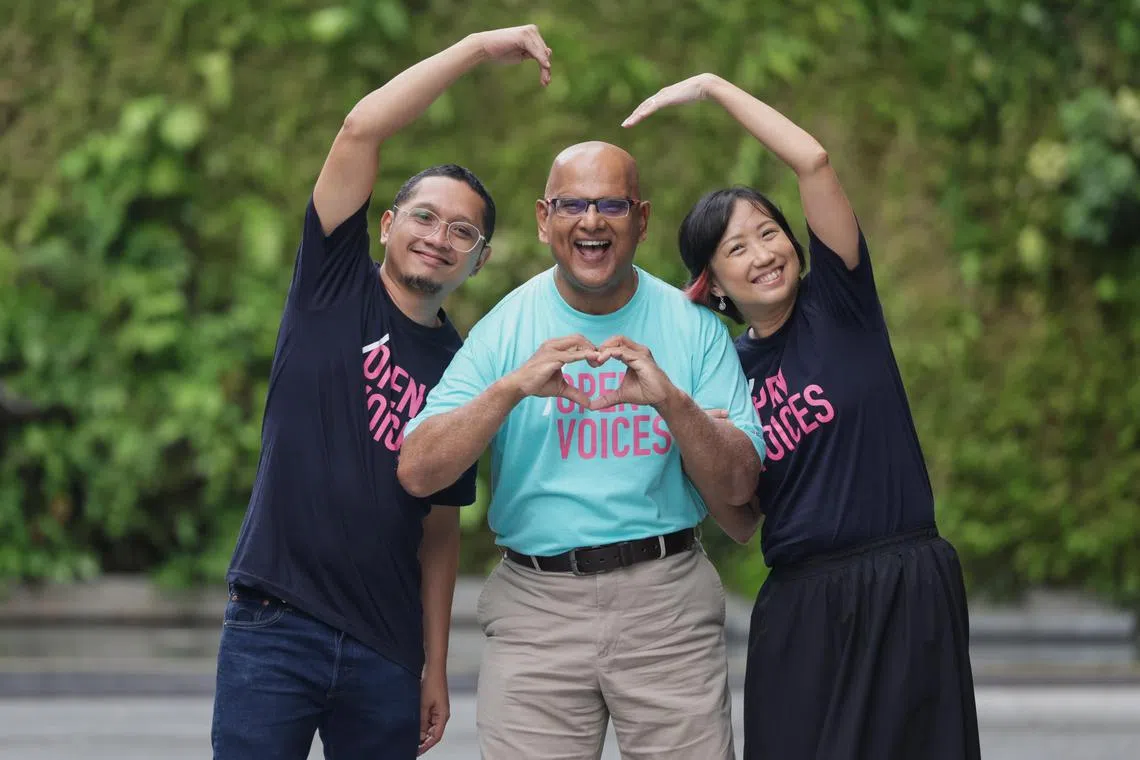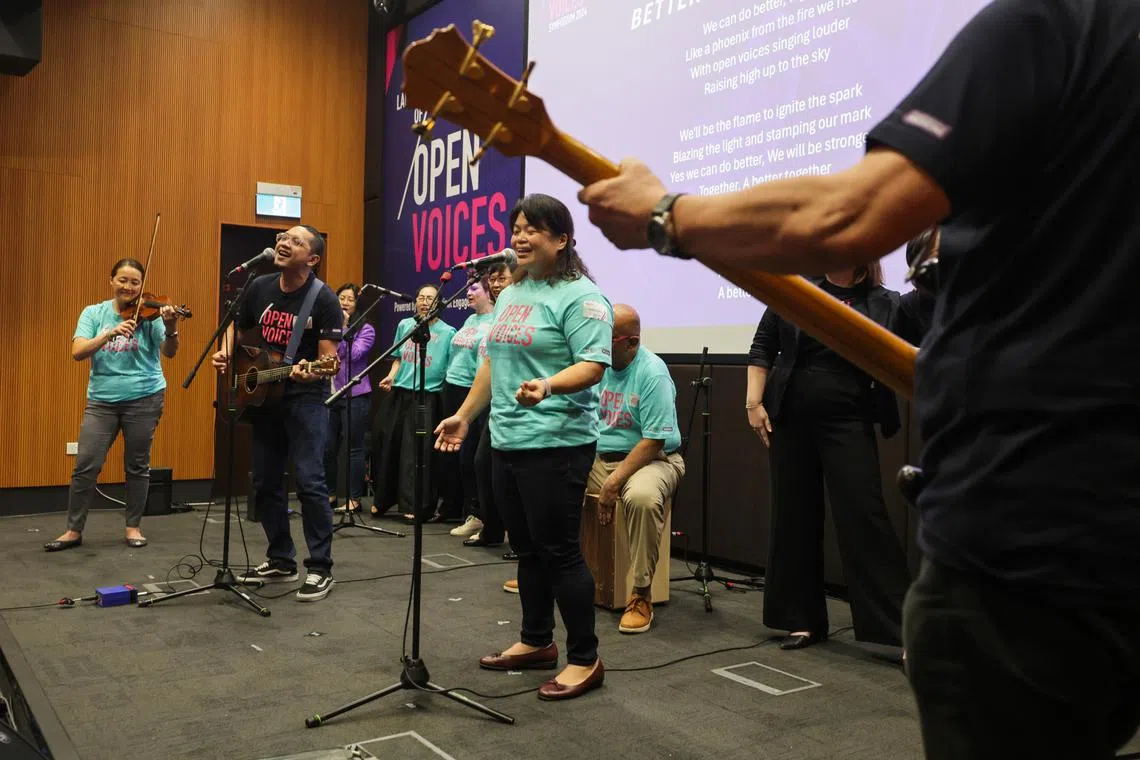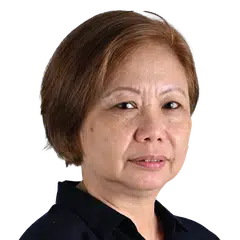Patients, caregivers in S’pore tapped to shape medical research with personal experiences
Sign up now: Get ST's newsletters delivered to your inbox

(From left) Music teacher and songwriter Hazwady Nazran, Mr Ellil Mathiyan, a cancer survivor, and Ms Rae Mok, a caregiver, are among the members of the new Open Voices network.
ST PHOTO: GIN TAY
SINGAPORE – Patients and caregivers here now have the opportunity to turn their personal experiences into meaningful insights that could shape medical research and education.
Through the new Open Voices network, they would essentially play the role of “medical research partners” to medical and healthcare researchers, helping to improve the relevance of their studies.
Launched on Nov 19 by the Lee Kong Chian School of Medicine (LKCMedicine) at Nanyang Technological University, the network is the first of its kind among medical schools in Singapore.
Patients bring unique perspectives that go beyond data and theory, said Associate Professor Sanjay Haresh Chotirmall, vice-dean of research at LKCMedicine.
“They hold insights into the daily realities of living with conditions, into what meaningful outcomes look like, and into the nuances of barriers and burden that data alone cannot capture,” he added, speaking at the official launch of Open Voices at the Patient Voices Symposium 2024 held at the school. While patients doing surveys and giving blood for research are still important, “what we are doing here is about uplevelling their involvement to be research partners, to advise and co-create patient-informed research and medical education”.
“This will help to optimise research design and processes, ensuring that patients’ needs, expectations and preferences are incorporated, and ensuring that our work is grounded in the real world, responsive to real needs, and accountable to the people it aims to help,” Dr Chotirmall added.
To date, Open Voices has 40 patient, caregiver and public partners from all walks of life, ages and ethnicities. The patient partners live with a variety of health conditions, from cancer and diabetes to eczema and dementia.
At the launch event, music teacher and songwriter Hazwady Nazran shared his experience with adult onset anti-NMDA encephalitis, a rare type of autoimmune disorder that causes psychiatric features, confusion, memory loss and seizures. The 38-year-old had had a series of violent episodes and paranoid delusions, but he did not have a single memory of them. “My speech became impaired and I could not form logical thoughts,” he said. His wife, Dr Miria Hastuti Soedarsono, 34, told The Straits Times that it took several consultations and many tests, including a spinal tap, before his condition was finally diagnosed.
With proper treatment, Mr Hazwady is now able to write and teach music and had even written a song that he and other members of Open Voices performed at the launch.

Mr Hazwady Nazran (second from left) and other members of Open Voices performing a song he wrote at the launch of Open Voices.
ST PHOTO: GIN TAY
Another patient-partner is Mr Ellil Mathiyan, 65, a rectal and testicular cancer survivor who works in the security industry. He is part of a team applying for a cancer screening research grant as a collaborator – a role that is typically reserved for researchers and clinicians.
“It is more important for researchers to get patients involved in their studies instead of merely asking what is the matter with patients,” Mr Mathiyan said. “As a patient-partner I will be able to make the research more patient-centric and act as the bridge over the large chasm between bench and bed.”
Dr Chotirmall noted that patient and public involvement is widely practised in countries like Britain, Australia, Canada and the US, but it is relatively new in Asia and Singapore.
The active involvement of patients and the public alongside researchers in clinical research could even see patients’ names in the published research paper, he said.
Ms Ai Ling Sim-Devadas, deputy director of the office of patient engagement at LKCMedicine, noted that informal caregivers play important roles in ensuring the patients are doing well despite their conditions. “It is important, therefore, to listen to their take and include them in research.”
One such caregiver is Ms Rae Mok, 47, whose daughter has a rare chromosomal condition, husband is a cancer survivor, and who has elderly parents. As a caregiver-partner, she provided not only the insights into caring for her charges, but also the challenges of navigating the healthcare system for them.
Her 20-year-old daughter, for instance, had to see 11 doctors and three therapists, and had to keep track of her appointments, all her prescribed medications and when to take them.
Ms Mok, an assistant manager at the Singapore Cancer Society, also joined patient advocate groups in 2023 to share her experience with doctors and other healthcare professionals. “I want to ensure they know that communication skills are just as important as medical skills,” she said.
“Through Open Voices, I hope to support researchers and doctors in developing person-centred care, ensuring future treatment recognises us as persons first, and our illnesses second.”



